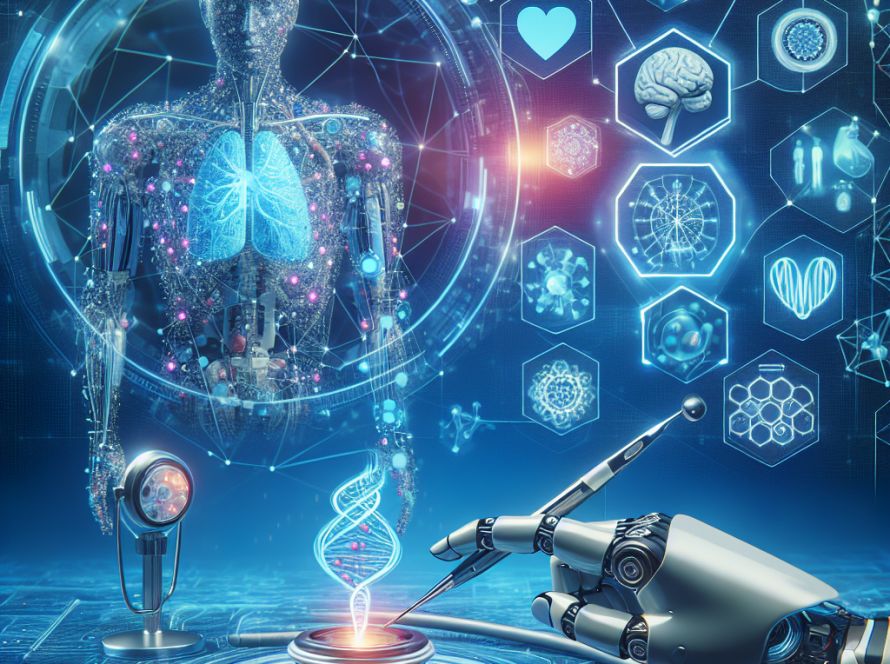The integration of artificial intelligence (AI) into healthcare is driving impressive breakthroughs and innovations, reshaping the way patient care is delivered and improving medical outcomes. Some of these applications include enhancing medical imaging and diagnostics, personalizing treatment plans, speeding up drug discovery and development, facilitating virtual health assistance and powerful predictive analytics, promoting disease prevention, refining precision medicine for cancer treatment, aiding robotic surgeries, enabling remote patient monitoring, and more robust health data security and privacy.
AI-powered medical imaging significantly improves diagnostic accuracy. Machine learning algorithms can surpass human radiologists at detecting anomalies and potential diseases in medical images such as X-rays, CT scans, and MRIs. This advancement allows for early detection, thereby reducing the possibility of misdiagnosis and enhancing patient outcomes.
AI’s ability to create personalized treatment plans is another major breakthrough. By considering a patient’s medical history, genetics, lifestyle, and responses to treatment, AI algorithms can propose individualized treatment plans. This approach minimizes negative effects, optimizes treatments, and offers precise therapies for chronic conditions.
The traditional drug development process can be costly and time-consuming. But thanks to AI, the process can be expedited by modelling chemical interactions, predicting potential therapeutic candidates, and fast-tracking the discovery of target molecules for specific diseases.
Virtual health assistants, enabled by AI, are changing how people interact with healthcare providers. One example is NeooAI, a digital holographic assistant that can engage in interactive conversation with patients, providing vital information and support.
The use of AI in predictive analytics is another game-changer. By examining large volumes of patient data, AI algorithms can anticipate readmissions, complications or deteriorations, enabling healthcare professionals to act proactively.
AI also plays a significant role in disease prevention and population health management. By evaluating demographic data, environmental factors, and health patterns, healthcare institutions can identify high-risk groups, potential disease outbreaks, effectively allocate resources, and maximize public health initiatives.
The complexity of cancer calls for personalized treatment plans, precision medicine, using AI platforms examine genetic mutations and other biomarkers to suggest targeted treatments for cancer patients.
Robotic surgery, using AI-assisted technology, has revolutionized the field by enabling complex procedures with increased precision, reduced risk, fewer postoperative complications, and quicker patient recovery.
With AI, remote patient monitoring has come to the fore, facilitating real-time tracking of patient health data through wearable devices and sensors providing vital information for timely interventions and continuous care.
As AI technology evolves, it’s essential that healthcare professionals, researchers, and legislators collaborate to maximize its potential while upholding the highest standards of patient safety, ethics, and privacy. By embracing AI responsibly, we can enable a more effective, accessible, and patient-focused global healthcare industry.


